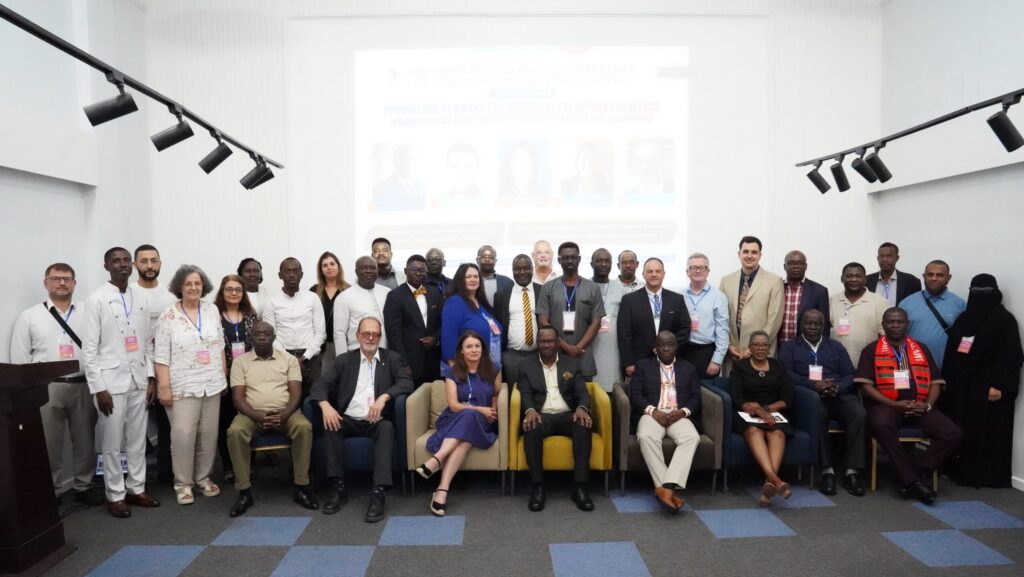APNET, as a regional publishers’ association, is an associate member of the IPA and they kindly invited me to talk to them about IPA’s Partnership with Africa and what’s at stake.
When I started at the IPA, we had 5 African members: Kenya, Nigeria, South Africa, Egypt and Tunisia. I am very proud to say that in my time as Secretary General we have more than tripled that number to now include Morocco, Libya, Sudan, Somalia, Senegal, Côte d’Ivoire, Tanzania, Malawi, Mauritania, Uganda, Ghana, Mozambique, APNET and Afrilivres. That is 19 members. We’ve slowed down a bit in recruiting in the last couple of years, but I encouraged anyone who wasn’t yet a member and would like to join to contact me. We’d love to welcome them into the IPA community and work more closely together.
I emphasized the theme of partnership. Having more African members means I can walk into meetings at WIPO, UNESCO, or the WTO and say I truly represent Africa.
I also pointed out that it allows us to bring them to Geneva, introduce them to the African Group at WIPO, and let them explain directly that what is being asked for by the African Group isn’t necessarily what African publishers want. I told our members: you give us legitimacy, and we give you a voice.
We have two African publishers on our Executive Committee: Chief Uchenna Anioke from Nigeria, and APNET’s Chair, Lawrence Njagi from Kenya.
Since we were founded 129 years ago, we’ve had two Policy Pillars: Copyright and Freedom to Publish (FtP). These are the issues that knit together all our members, no matter what their differences in geography, history, culture or language. Without Copyright and FtP, there is no publishing.
Much of the work of the IPA happens at our Committee level. Africa has designated members of the Copyright Committee and I’m happy to say that Kiarie Kamau and Brian Wafawarowa are both on our Copyright Policy Working Group (CPWG) which acts as a steering Committee for our copyright work. Maxwell Wahome from Kenya sits on our Membership Committee but there are no Africans on our Freedom to Publish Committee, which is curious because the continent has a history of producing laureates of our freedom to publish prize, the Prix Voltaire.
From there I was able to talk about public affairs and the local, regional and international aspects to consider, particularly with issues like copyright, taxation, book policies.
On a local level, national governments are the obvious focus of attention and a closer relationship between IPA members and their government bureaucracies is crucial. However, most of our African members rely heavily on volunteer labour so their options are limited: private consultancies are available but can be expensive; an in-house team is an option; or you can get punctual international support from organsations like the IPA. But this is only useful for the short to mid term.
On a more strategic regional level, we need to ask what are the regional levers affecting the local African sector. ARIPO, OAPI, and the African Union are key targets at this level. This is a mid to long term strategic priority. The Africa Continental Free Trade Agreement is an example of how important this can be.
The international level seems far away from the day to day lives and work of APNET publisher members but it can have the biggest impact on their businesses. For example, at WIPO, the positions taken by African Member States on exceptions to copyright law for education will devastate their local publishing markets. WIPO is also important with regard to discussions around Traditional Knowledge and most recently around AI.
And make no mistake, we see the shadows of Big Tech everywhere around the Standing Committee on Copyright and Related rights and other committees at WIPO. This theatre of operations is where the IPA is most active and most useful to our members. We will continue to invite our African members to these forums so that they can see for themselves what their governments are proposing.
My message was clear. African publishers are not on their own and IPA exists to support them. BUT we also need their support. We will fight for African publishers in Geneva, but we need them to raise their voices at home to convince their local governments.
The African Continental Free Trade Agreement (AfCFTA) was (and still is) the perfect example. The AfCFTA, which came into force in 2019, is the world’s largest free trade area bringing together the 55 countries of the African Union and 8 Regional Economic Communities to create a single market for the African continent.
In February 2023, the AfCFTA approved an IP protocol, without consulting industry stakeholders. That protocol albeit containing a few positive references to copyright protection, also raised concerns on possible expansion of exceptions and the limiting of enforcement efforts.
At the time, IPA and several of our African Members (Ghana, Kenya, Malawi, Nigeria, South Africa, and APNET) sent a joint letter to the Secretariats of both AfCFTA and African Union calling for urgent consultations with industry stakeholders.
As the AfCFTA Annex will be a binding legal instrument, it has the potential to affect copyright laws in many African countries and beyond.
Therefore, publishers’ associations in Africa need to lead national efforts and actively participate in coalition efforts with the IPA. I called on the participants to engage national copyright offices, to launch consultations at national level and to encourage the AfCFTA Secretariat to convene consultations as well.
I concluded by reiterating our support for our African members but asking two questions: how can we support our African members structurally? And how can our African members benefit from the expertise of our other members?

